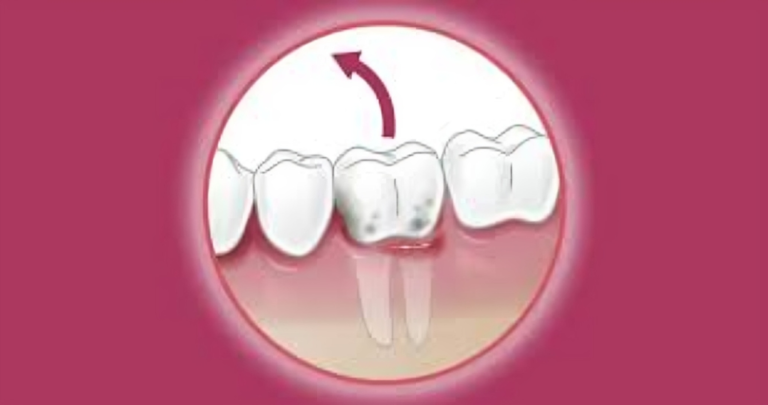Exploring the Revolution of Dental Implants: A Solution for Missing Teeth.
Dental implants have revolutionized the field of dentistry, offering a durable and natural-looking solution for replacing missing teeth. Unlike traditional bridges or dentures, dental implants provide a permanent foundation for replacement teeth, restoring both function and aesthetics. In this article, we’ll delve into the world of dental implants, exploring their benefits, types, procedure, and considerations for patients considering this innovative treatment.”Best Dental Clinic in Vasundhara”
To Know More About It Please Click Here
The Benefits of Dental Implants
Dental implants offer numerous advantages over traditional tooth replacement options, including:
- Improved Functionality: Dental implants function like natural teeth, allowing patients to bite, chew, and speak with confidence. Unlike removable dentures, implants are firmly anchored in the jawbone, providing stability and preventing slippage or discomfort.
- Enhanced Aesthetics: Dental implants closely resemble natural teeth in appearance, shape, and color, resulting in a seamless and natural-looking smile. Implants are custom-made to match the surrounding teeth, ensuring a harmonious and aesthetic outcome.
- Preservation of Bone Structure: When a tooth is lost, the underlying jawbone can deteriorate over time due to lack of stimulation. Dental implants mimic the function of natural tooth roots, stimulating bone growth and preserving the bone structure of the jaw.
- Longevity and Durability: With proper care and maintenance, dental implants can last a lifetime, making them a cost-effective long-term solution for tooth replacement. Implants are made of biocompatible materials such as titanium, which integrate with the surrounding bone and provide long-lasting support.
Types of Dental Implants
There are several types of dental implants available, depending on the patient’s specific needs and jawbone structure:
- Endosteal Implants: Endosteal implants are the most common type of dental implants and are placed directly into the jawbone during a surgical procedure. Once the implant integrates with the bone (osseointegration), a custom-made crown is attached to the implant, replacing the missing tooth.
- Subperiosteal Implants: Subperiosteal implants are placed on top of the jawbone, beneath the gum tissue. This type of implant is used when there is insufficient bone height or density to support endosteal implants. Subperiosteal implants consist of a metal framework that rests on the jawbone, with prosthetic teeth attached to the framework.
- All-on-4 Implants: All-on-4 implants are a specialized technique used to replace an entire arch of teeth (upper or lower) with just four implants. This innovative approach utilizes strategic placement of implants to maximize support and stability, allowing for the attachment of a full arch of fixed prosthetic teeth.
The Dental Implant Procedure
The dental implant procedure typically involves several stages:
- Initial Consultation: During the initial consultation, the dentist evaluates the patient’s oral health, discusses treatment options, and develops a customized treatment plan.
- Implant Placement: In the first surgical phase, the dental implant is surgically placed into the jawbone. This procedure is performed under local anesthesia, and the implant is allowed to integrate with the bone over several months.
- Healing and Osseointegration: After implant placement, a healing period is necessary to allow for osseointegration, during which the implant fuses with the surrounding bone tissue.
- Abutment Placement: Once osseointegration is complete, an abutment is attached to the implant to connect the implant with the prosthetic tooth or teeth.
- Prosthetic Restoration: Finally, a custom-made crown, bridge, or denture is fabricated and attached to the abutment, restoring function and aesthetics to the smile.
Considerations for Patients
Before undergoing dental implant treatment, patients should consider the following factors:
- Oral Health: Good oral hygiene and overall oral health are essential for the success of dental implants. Patients with gum disease, untreated cavities, or inadequate bone density may require additional treatment before implant placement.
- Bone Density: Sufficient bone density is necessary to support dental implants. Patients with insufficient bone volume may require bone grafting or augmentation procedures to enhance bone density and support implant placement.
- Lifestyle Factors: Patients should consider lifestyle factors such as smoking, which can impair healing and increase the risk of implant failure. Maintaining good oral hygiene, attending regular dental check-ups, and avoiding habits that may damage the implants are important for long-term success.
- Cost: While dental implants offer long-term benefits, they may involve higher upfront costs compared to traditional tooth replacement options. Patients should discuss cost considerations and potential insurance coverage with their dentist before proceeding with treatment.
To Know More About It Please Click Here
Conclusion
Dental implants have transformed the landscape of tooth replacement, offering a permanent and reliable solution for restoring function, aesthetics, and confidence to patients with missing teeth. With advancements in implant technology, surgical techniques, and prosthetic materials, dental implants continue to evolve, providing patients with improved outcomes and quality of life. By understanding the benefits, types, procedure, and considerations associated with dental implants, patients can make informed decisions and achieve a healthy, beautiful smile that lasts a lifetime.”Best Dental Clinic in Vasundhara”








